 Target Words Activities
Target Words Activities
Here activities focus on the "target words" needed to be learned and understood by kindergarten.
-

- Activity Title
- ?
Topic or Theme
Identifying letters in a child's name and listen to ABC (The Alphabet Song)

-
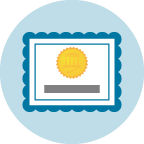
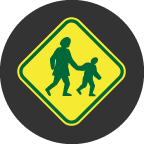
First Name
Brief description of activity or summary of tasks and/or materials used.
-

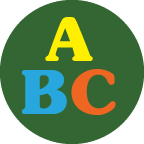
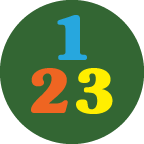
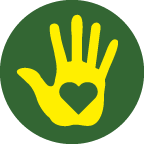

-
- Target Words
- 14
Hot, Soft, Above, Below
Above or below
-

Hot, Soft, Above, Below
Above or below
-


-
- Target Words
- 15
If, When, Sad, Soon
Activity to learn - who, what, where, when, how
-
If, When, Sad, Soon
Activity to learn - who, what, where, when, how
-


-
- Target Words
- 14
Under, Up, Down, Tall
Using exercise to teach target words
-
Under, Up, Down, Tall
Using exercise to teach target words
-



-
- Target Words
- 15
Goodnight, Sweet, Sour, Next
Learning the meaning of "next"
-

Goodnight, Sweet, Sour, Next
Learning the meaning of "next"
-


-
- Target Words
- 14
If, When, Sad, Soon
Listen to song "Stand By Me" and play word game "What If?"
-
If, When, Sad, Soon
Listen to song "Stand By Me" and play word game "What If?"
-



-
- Target Words
- 14
Stop, Go, Slow, More
Learn finger play "Red Says Stop" to recite in the car
-

Stop, Go, Slow, More
Learn finger play "Red Says Stop" to recite in the car
-


-
- Target Words
- 15
Hot, Soft, Above, Below
Practicing the meaning of above and below
-

Hot, Soft, Above, Below
Practicing the meaning of above and below
-


-
- Target Words
- 14
Long, Little, Short, Small
Creating long and short cereal trains
-
Long, Little, Short, Small
Creating long and short cereal trains
-



-
- Target Words
- 15
Big, Bigger, Happy, Small
Illustrating target words with body motions
-

Big, Bigger, Happy, Small
Illustrating target words with body motions
-


-
- Target Words
- 14
Target Words - In, Out, Empty, Full
Understanding the words "in" and "out" by singing “Hokey Pokey”
-

Target Words - In, Out, Empty, Full
Understanding the words "in" and "out" by singing “Hokey Pokey”
-



-
- Target Words
- 15
On, Top, High, Low
Using song "Clap Your Hands Now" to follow directions and reinforcing target words high and low
-
On, Top, High, Low
Using song "Clap Your Hands Now" to follow directions and reinforcing target words high and low
-

-
- Target Words
- 14
Fast, Front, Sort, Same
Understanding the meaning of fast and front
-
Fast, Front, Sort, Same
Understanding the meaning of fast and front
-



-
- Target Words
- 14
Target Words
Finger play "Up Down Turn Around"; use previous target words Up and Down and introduce Good-bye
-

Target Words
Finger play "Up Down Turn Around"; use previous target words Up and Down and introduce Good-bye
-



-
- Target Words
- 14
On, Top, High, Low
Using target words with color red
-
On, Top, High, Low
Using target words with color red
-

-
- Target Words
- 14
Day, Later, Night, Now
Observing the sky to learn target words
-

Day, Later, Night, Now
Observing the sky to learn target words
-


Activity Skills Focus
1 Social / Emotional Skills
Skills that develop children’s ability to understand the emotions of others and help children recognize and use appropriate social behaviors (for example, making friends). In the Department of Education report “Guiding Principles A Resource Guide for Improving School Climate of January 2014 it states “strategies such as social-emotional learning programs that address non-cognitive skills, including problem-solving, responsibility and resiliency, can also help students develop the skills needed to fully engage and thrive in the learning environment.”
2 Language Skills
Skills that help children understand and communicate during early childhood. The alphabetic principle (knowing letter names and sound-letter matches) aids in language development and is enriched by verbal interactions with other children and adults (reading aloud and engaging in conversation).
View all Language Skills Activities
3 Math / Science Skills
Math and Science skills help children with problem-solving and reasoning. Exploring numbers, patterns, and measurements by using math manipulatives (beads, counters, pennies) are all ways children develop their math skills. Asking questions about their surroundings, learning a science vocabulary (predict, observe), and having hands-on experiences with their environment can help develop their science skills.
4 Motor Skills
Motor skills are actions that involve the movement of muscles in the body. They are divided into three groups:
1. gross motor skills, which are the larger movements of arms, legs, feet, or the entire body (crawling, running, and jumping)
2. fine motor skills, which are smaller actions, such as grasping an object between the thumb and a finger (pencils or scissors)
3. sensorimotor skills which use the five senses to guide physical motions as in eye-hand coordination.
View all Motor Skills Activities
5 Problem Solving Skills
Skills that help with the construction of thought processes, including memory, problem-solving, and decision-making.
